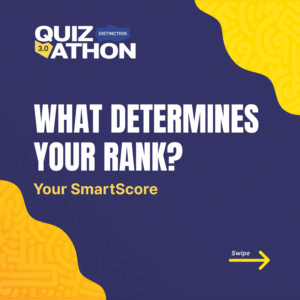Auditory vs Visual Learning: What Works Best For You?
Imagine sitting in a crowded lecture hall at UNILAG, trying to absorb complex information. Some of your classmates are diligently scribbling notes, their eyes glued to the projector screen, while others seem to be learning best by listening intently to the lecturer’s voice, perhaps even recording the session on their phones. This difference highlights a fundamental aspect of how we learn: our preferred learning styles. Among the most recognized are auditory vs visual learning. Understanding them and how modern AI tools are adapting to them in testing environments is crucial for Nigerian university students aiming for academic success.
With the rise of AI in education, platforms like Distinction are revolutionizing how Nigerian students prepare for and take tests by tailoring assessments to individual preferences. In this article, we’ll explore the differences between auditory and visual learners, how AI tools adapt to these styles during testing, and why personalized learning is a game-changer for university students in Nigeria.
Understanding Auditory vs Visual Learning Styles
Learning styles shape how students absorb and retain information. For Nigerian university students juggling lectures, assignments, and exams, recognizing whether you’re an auditory or visual learner can make studying more effective. These two styles represent distinct ways of processing information, and each comes with unique strengths that can be leveraged for academic success.
Auditory learners excel when information is presented through sound. They grasp concepts best by listening to lectures, discussions, or audio recordings. If you’re the student who remembers every word from your lecturer’s explanation or loves group discussions in your hostel, you might lean toward auditory learning.
These learners often benefit from verbal instructions, mnemonic devices like rhymes or songs, and even repeating information aloud to reinforce memory. For instance, a student at UNIBEN might record a biochemistry lecture and replay it while commuting to campus, cementing key concepts through repetition.
Visual learners, on the other hand, prefer seeing information. They rely on diagrams, charts, flashcards, and written notes to understand concepts. If you’re sketching mind maps during revision or highlighting textbooks in bright colors, you’re likely a visual learner. These students excel when information is organized spatially, like in graphs or infographics. For example, a computer science student at Covenant University might create a flowchart to understand an algorithm, making complex processes easier to digest.
In Nigerian universities, where lecture halls are often packed and resources can be limited, tailoring study habits to your learning style is crucial. Whether you’re studying medicine at UNILAG or engineering at ABU, understanding auditory vs visual learning helps you maximize your study time. Many students face challenges like outdated textbooks or inconsistent electricity, making efficient study methods essential. AI tools like those on Distinction take this a step further by adapting tests to suit your preferences, ensuring you’re not just memorizing but truly understanding. By aligning study techniques with your natural strengths, you can boost retention and perform better in high-stakes exams.
The Role of AI in Personalized Learning
Artificial intelligence is transforming education worldwide, and Nigerian universities are no exception. AI-powered platforms like Distinction use advanced algorithms to create personalized learning experiences. By analyzing how students interact with content, these tools adapt to individual needs, making testing more effective and engaging. This is particularly valuable in Nigeria, where diverse educational backgrounds and resource constraints demand flexible solutions.
How AI Identifies Learning Preferences
AI tools assess your learning style through data like quiz performance, study habits, and interaction with digital content. For example, if you frequently replay audio summaries, the system might flag you as an auditory learner. If you engage more with visual aids like charts, it adjusts accordingly. This adaptive learning approach ensures tests align with how you learn best. For a student at UNIPORT, this might mean receiving more audio-based practice questions for a literature course, while a visual learner at FUTA gets diagram-heavy physics problems.
Benefits of AI-Driven Assessments
Personalized assessments boost student engagement by presenting questions in formats that resonate with your learning style. For auditory learners, this might mean audio-based questions, while visual learners get image-rich prompts. Studies show that tailored learning experiences improve retention and performance, helping Nigerian students excel in high-stakes exams. Additionally, AI tools provide instant feedback, allowing students to identify weak areas and adjust their study plans quickly. This is a lifeline for students balancing academics with part-time jobs or family responsibilities.
AI’s Role in Overcoming Educational Barriers
In Nigeria, students often face systemic challenges like limited access to quality study materials or overcrowded classrooms. AI tools bridge these gaps by offering accessible, high-quality resources tailored to individual needs. For instance, a student in a remote area with limited internet can use apps with offline features to practice tests on their smartphone. This democratization of education ensures that every student, regardless of location or resources, has a chance to succeed.
Auditory Learning and AI-Powered Testing
Auditory learners thrive on sound-based input, and AI tools are stepping up to meet their needs, creating an immersive learning experience.
Audio-Based Questions in Testing
Imagine taking a biology test where questions are read aloud through your earphones, mimicking a lecturer’s explanation. AI tools can deliver audio prompts, allowing auditory learners to process information naturally. For example, a history student at UNN might listen to a question about the Nigerian Civil War, with key details emphasized through tone and pacing. This format feels familiar and reduces cognitive strain, helping students focus on content rather than delivery.
Interactive Voice Feedback
AI platforms also provide verbal feedback after tests. Instead of reading a report, you might hear a virtual tutor explain why you missed a question on thermodynamics. This approach reinforces learning for auditory students, making revision feel like a conversation rather than a chore. For a linguistics student at UI, hearing feedback in a clear, conversational tone can clarify complex grammar rules, making them easier to apply in future tests.
Visual Learning and AI-Powered Testing
Visual learners benefit from AI tools that emphasize imagery and structure. Distinction’s adaptive features create a testing environment where visual learners can shine, leveraging their preference for visual stimuli.
Image-Rich and Diagram-Based Questions
For visual learners, AI tools incorporate charts, diagrams, and videos into tests. A chemistry student at OAU might encounter a question with a labeled periodic table or a video showing a reaction. These visuals help visual learners connect concepts quickly, improving comprehension during exams. For instance, a geology student at ABU might study rock formations through interactive 3D models, making abstract concepts tangible.
Color-Coded Feedback and Progress Tracking
AI platforms often use color-coded dashboards to show test results. Visual learners can see their strengths and weaknesses at a glance, with graphs highlighting progress over time. This approach keeps students motivated, especially when cramming for finals in a busy semester. A business administration student at LASU might use these visuals to track improvement in accounting, turning data into a clear path for success.
Benefits of AI Tools for Nigerian University Students
AI-powered testing isn’t just about passing exams—it’s about building skills for the future. Nigerian students face unique challenges, from crowded lecture halls to limited access to resources. Platforms like Distinction address these issues with innovative solutions that empower students.
Increased Accessibility and Flexibility
Digital testing tools are accessible on smartphones, a must for students who may not own laptops. Whether you’re studying at UNIPORT or FUTA, you can take practice tests anywhere, from your hostel to a bus ride home. This flexibility fits the busy lives of Nigerian students, many of whom juggle academics with other responsibilities.
Boosted Confidence and Reduced Anxiety
Personalized tests reduce exam stress by aligning with your learning style. A 2024 study found that AI-assisted assessments lowered foreign language anxiety for students, and similar benefits apply to other subjects. When tests feel tailored, confidence soars. For instance, a nursing student at UNICAL might feel less overwhelmed by pharmacology exams when questions are presented in a familiar visual format.
Preparing for a Digital Future
As Nigeria’s economy embraces technology, familiarity with AI tools gives students an edge. Using platforms like Distinction prepares you for tech-driven careers in fields like engineering, medicine, and business, where adaptive learning is becoming the norm. By mastering AI-driven tools now, you’re setting yourself up for success in a rapidly evolving job market.
Supporting Diverse Academic Goals
AI tools also support students pursuing varied academic paths. Whether you’re aiming for a first-class degree or simply passing a tough course, Distinction’s personalized approach helps you achieve your goals. For example, a part-time student at NOUN can use the platform’s flexible testing options to study at their own pace, while a full-time student at UNIMAID can drill down into specific weak areas before exams.
Final Words
Understanding auditory vs visual learning is the first step to mastering your studies as a Nigerian university student. Whether you learn best through listening or seeing, AI tools adapt to your unique style, making testing more engaging and effective. By offering audio prompts for auditory learners, visual aids for those who prefer imagery, and real-time analytics for all, these platforms ensure you’re set up for success. Their accessibility and flexibility make them a perfect fit for Nigeria’s dynamic academic landscape.
Ready to transform your academic journey? Visit Distinction today to explore its adaptive learning features. Sign up and discover how personalized testing can help you earn that distinction in your next exam. Don’t just study—study smart with Distinction.
Ready to Level Up?
Check out Distinction Pricing and discover how easy it is to unlock your full academic potential.
Keep pushing, keep winning — we’re with you all the way.




